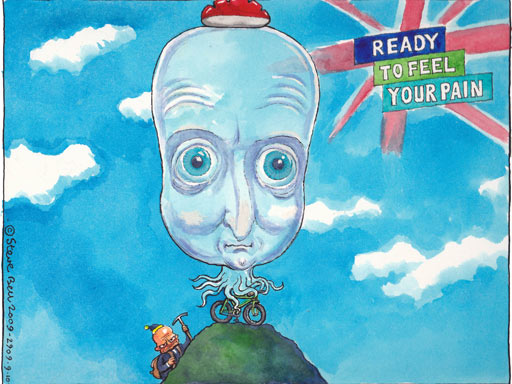Mazty said:
Agema said:
Mazty said:
*Ahem* Piss off troll. I actually lived in a part on the Wirral on a road of drug dealers and users, so go cram that up your sceptic *ss.
Okay, please go around Leasowe and take a survey of what people voted for. Don't blame me if you come back in a body bag.
Do you mean septic, or skeptic?
The reason I mock mildly is that you're just so unnecessarily rude. Those who give should expect to receive.
sceptic=skeptic
You mock. You are clearly the rude one, whilst being a sceptic is nothing more than immature and non-constructive. I was merely being blunt in my response.
I don't think people who say "Piss off" and so on (you insulted at least one other user earlier on) have much grounds to claim they aren't rude.
I am indeed a skeptic. However, if you want to understand more about why, read http://en.wikipedia.org/wiki/Skepticism . It is actually a respectable philosophical outlook rather than immature, a major principle of scientific method, and is actually quite the opposite of non-constructive.
* * *
I'm not against benefits reform at all. However, I possibly see different problems.
Yes, a "benefits culture" does encourage some people to laze around. How many is a different matter: I think the number who actively don't want to work is small, you may disagree, and I don't think there are any figures. What I suspect we also disagree on is why they don't want to work. You probably see it as a cynical con, whereas I think many of these people are 'broken' by bad social conditions and institutional failure.
I think people need help - not necessarily money directly in their pocket - but they need the government to provide things like childcare, education, training and apprenticeships, which give them free time and space to improve themselves to get a job. It's a bit like aid to Africa: when given food, they'll do nothing but eat; given farm tools and seeds, they'll grow their own food. Quite simply, people need a safe and stable platform to build on, and if they cannot provide for themselves, the government has to.
Some of it is red tape: take job insecurity. Someone gets a job, loses benefits. However, they may lose the job shortly later (particularly if temping), at which point they need to sign on again, and that's a load of fuss and several days with no income or housing benefit whilst stuff gets processed. This discourages people from leaving the dole in the first place.
Many have serious self-esteem, embitterment and estrangement problems - my gf is a psychologist, and tells me this is very common in people in poverty - who begin to see themselves as worthless and incapable of success. These people need some TLC to find something they are good at and give them a sense of purpose. That usually gets a roar of "namby-pamby liberal nonsense" from the right wing. However, in many cases it works. Take HMP Grendon, which specialises in rehabilitating criminals. The reconviction rate of a traditional prison is 50%, from HMP Grendon it's below 20%. That is a huge difference, and a testament to what can be done.
Making them work for benefits is not necessarily easy either. Firstly, with no attempt to resolve their problems with working, they mostly won't do good work. Secondly, the government has to provide tools for work, it will also have to pay a load of additional costs (e.g. administration, insuring against injury) required when people work for an organisation. It also clearly conflicts with the principle of minimum wage. Arguably, it's getting towards bonded labour or slavery, which is a big no.
The problems associated with poverty and unemployment need fixing. It needs people being fixed, and fixing them requires time, money and resources. The problem is, enacting these will likely all cost the government plenty of money, more maybe even than the existing benefits system.
A Draconian regime of simply witholding funds and resources, all sticks and no carrot, doesn't work. At worst, it just means people die on the streets.



